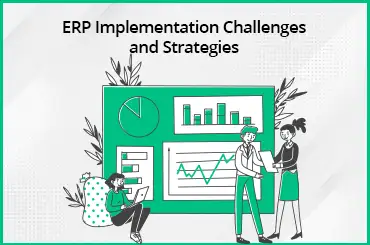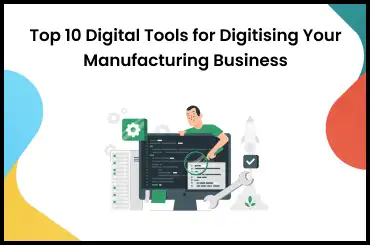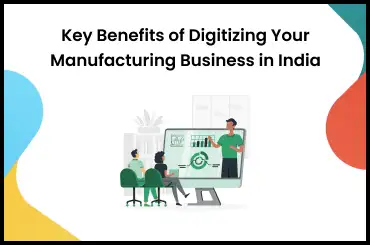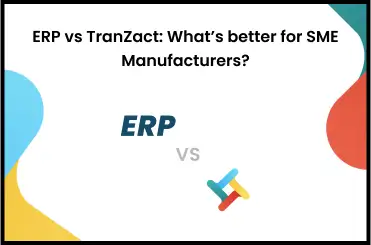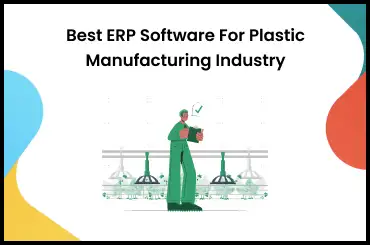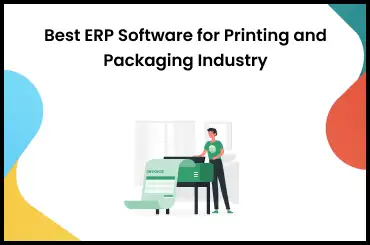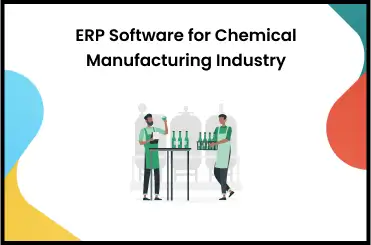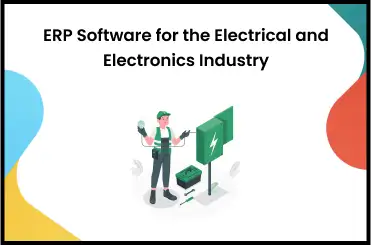By leveraging the features of ERP and its advantages, businesses can not only improve their operations and overall profitability but also make informed decisions by gaining access to important business data.
There are many types of Enterprise Resource Planning (ERP) systems that businesses are using to stay competitive and profitable. From data accuracy to enhanced workflow and from managing resources well to improved customer service, the benefits of ERP are several.
In this article, we will look at some advanced features of ERP along with the manufacturing, task automation, and other modules of an ERP system.
Core Features of ERP
Let us understand the core features of ERP to know why it is so vital for business operations.
Integration With Other Applications
One of the most useful features of ERP systems is their ability to integrate with other applications and modules. This allows organizations to access data from multiple sources and use it in their ERP system, making it easier for them to make decisions based on accurate information. Furthermore, integration also provides users with the ability to automate processes, reduce manual labor, and increase efficiency.
Task Automation
ERP automates many business functions like accounting, inventory management, human resources, customer relationship management (CRM), and more. ERP also plays a key role in automating sales and marketing functions like tracking customer orders, dispatching goods, creating an invoice, receiving payments, processing return orders, tracking lost orders and making reports.
Automating the process of managing and integrating key business processes helps businesses save time, money, and resources. Automation also helps to achieve greater accuracy and efficiency in operations, as well as improved customer service. With ERP automation, businesses can streamline their operations and gain a competitive edge in their industry.
Customer Relationship Management
Integration of ERP and Customer Relationship Management (CRM) systems have proved to be a boon for the success of any business. This results in combining user data from both systems to gain valuable insights about customers and operations, enabling them to make better decisions that improve customer satisfaction and increase efficiency.
Furthermore, the integration of ERP and CRM provides businesses with a single information source for all customer data, leading to improved accuracy in reporting and forecasting. Customer needs can be tracked at any stage and steps can be taken for improvement wherever there is a glitch.
Eventually, this will lead to improved customer service and increased sales opportunities.
Accounting and Financial Management
Finance and accounts are critical for every business. The ERP finance module helps improve financial processes, manage revenue and expenses efficiently. Also, communicating financial data to potential clients, vendors, and other people who matter becomes easier.
It leads to financial transparency, more accuracy, decreased processing time, better planning, centralization of financial information, and more. Further, it also helps in tax management and risk management.
Supply Chain Management
Manufacturing businesses are required to deal with suppliers and other providers for raw materials, finance, labor, marketing, and distribution. In short, they need to plan and streamline their supply chain processes and functions to bring high-quality finished goods to the market on time.
A feature-rich ERP system plays a key role in making the supply chain process smooth, organized, and efficient. Whether it is tracking inventory or streamlining production, getting the best price from suppliers, directing workers, or streamlining transportation and distribution management, ERP software does it all with finesse.
Manufacturing
With manufacturing ERP features, you can attain operational efficiency and ensure there is minimal downtime and improved quality of goods produced. The material requirements planning (MRP) module also helps to track raw materials and existing stock levels to ensure there is no dearth of stock when it comes to manufacturing.
It helps to do raw material planning as well as sourcing for manufacturing. When manufacturing happens at the right and smooth pace, businesses can focus on new revenue channels and enhance profitability.
The features of manufacturing module in ERP also help in planning, supervising, and forecasting production in an automated way. Some advanced ERP systems also have specific modules for assembly management, work order management, shop-floor management, and distribution management that help to improve work efficiency and minimize costs.
Sales and Marketing
Sales and marketing are other core functions of every business that need to be managed well to boost sales and increase the bottom line.
ERP systems that are integrated with CRM prove more advantageous for marketing and sales teams as it makes selling, upselling, forecasting, getting quotes, and calculating commissions and profits easier.
It helps in lead generation, running marketing campaigns, and tracking customer activity in the sales cycle. Sales and marketing function is used along with finance and operations to improve customer experience.
Data Services
Data collection, tracking, and analyses are very crucial for businesses these days to make better and more informed decisions. Go for an ERP system that offers data services features wherein it can collect, track, and analyze data related to the functioning of a business.
With real-time information and business metrics reports, timely corrective measures can be taken. Data analysis has a lot of potential as it offers useful insights for cost reduction and fraud prevention leading to happy customers and new clients.
Analytics and Reporting
Data analysis can be difficult to use unless data is presented in a meaningful way in the form of reports. This is why the reporting module that is core to any ERP software uses analytics tools for data investigation. It converts data collected into reports that help business owners and stakeholders to understand the business operations with better clarity.
Reports are in the form of pie charts, graphs, and other types of visual representations to understand trends and patterns. As a result, they can act in the right direction at the right time for the best results.
Achieve Business Growth With ERP
ERP systems are being used by most businesses due to their immensely useful features and capabilities as discussed above. ERP systems are a must for your business if you want to stay competitive and achieve excellence in today's market.
By leveraging the powerful capabilities of TranZact cloud-based software for end-to-end business automation, manufacturing companies can improve efficiency while cutting costs and increasing profits.
FAQs on Features of ERP
1. Which is the most significant feature of ERP?
One of the key features of ERP is integration with other modules and applications that helps to gain a complete central view of all the core business functions like inventory, finance, operations, human resources, inventory management, data and reporting, and more. Integration is one of the most significant ERP features and benefits.
2. What are the benefits of ERP?
The benefits of ERP include automating tasks like inventory management, supply chain management, and boosting cash flow while eliminating tedious processes and reducing errors. Additionally, they provide real-time visibility into the performance of the organization so that managers can make informed decisions quickly. Also, ERP systems are flexible, reliable, and secure to meet changing business needs. More benefits include customer information, cost savings, business intelligence, and data security.
3. Are there any other features of ERP than those discussed above?
More features of enterprise resource planning software are asset management, order management, service management, and warehouse management. So, when buying one for your business, ensure that it has the modules your business needs. For example, if you have a manufacturing unit ensure that your ERP has features of the manufacturing module.







